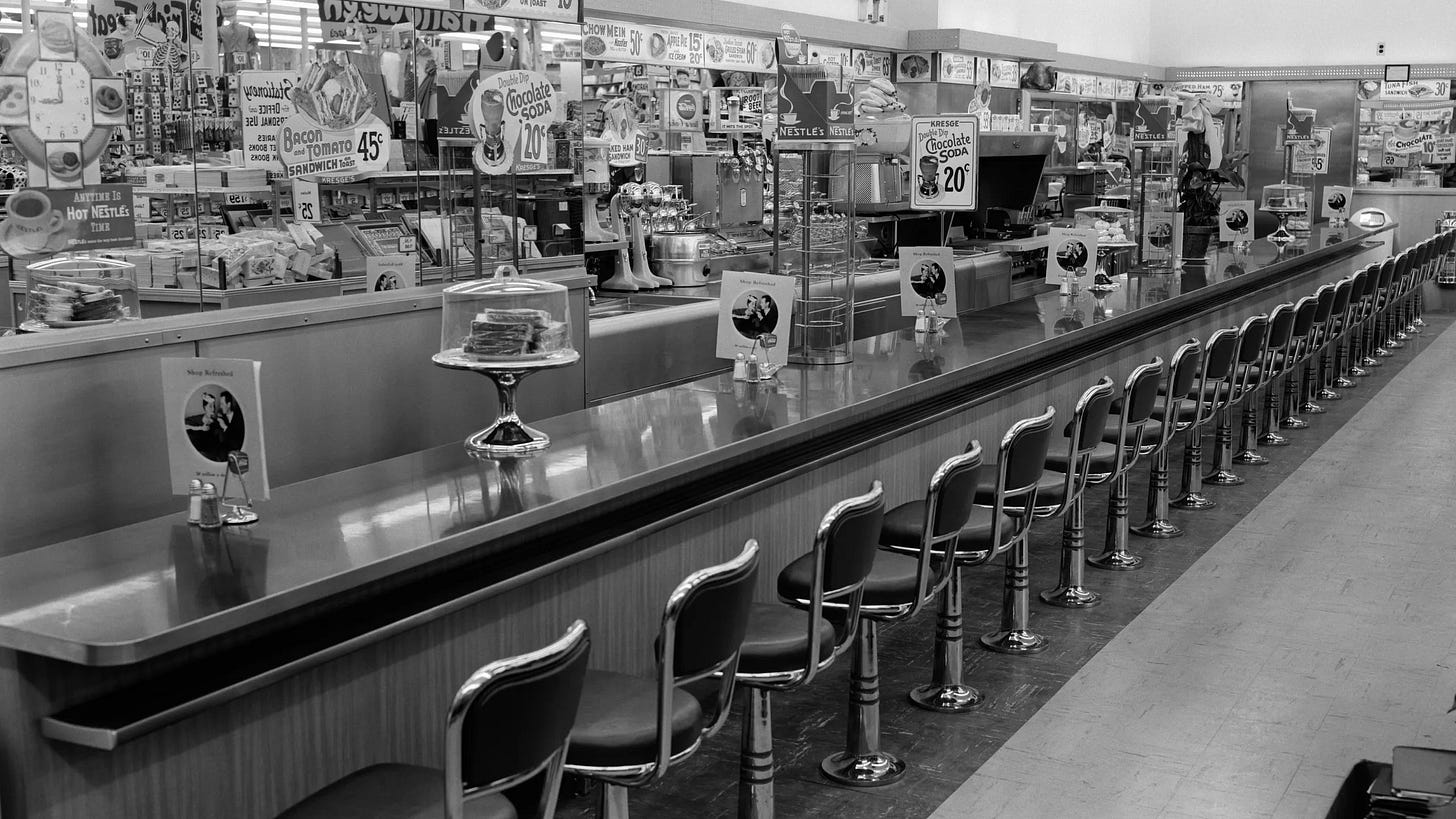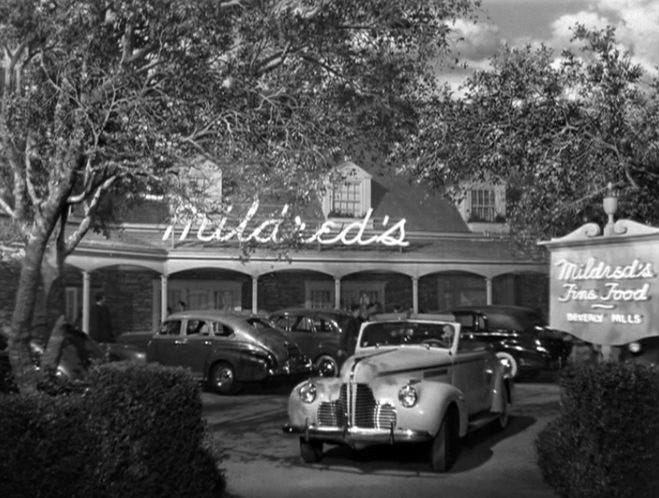The Diner in Film Noir (Part 1)
Part One in a Three Part Noirvember look at some of the iconic Diners of film noir.
The Diner in Film Noir
In film noir, diners, juke joints, and roadhouses serve as backdrops for some of the genre's core themes—disillusionment, isolation, moral ambiguity, and the tension between fate, choice, and chance. In these spaces, characters linger over coffee and ham sandwiches reckoning with the consequences of their actions.
Beyond the aesthetics, which range from grimy greasy spoons to swinging roadside stops, in these locations temptations arise, decisions are made, and the weight of consequences becomes inescapable and characters are often forced to confront the harsh realities of their lives, for better or worse.
Class and Compromise: Mildred Pierce (1945)
In Mildred Pierce, the diner serves as a crucial turning point in Mildred’s (Joan Crawford) journey, symbolizing both her immediate economic reality and the potential for upward mobility. Set against the backdrop of the Great Depression, when financial hardship forced many women to seek employment outside the home, the diner becomes a space where Mildred can capitalize on her domestic skills to survive and ultimately rise above her circumstances.
Initially, she tries to support her family by baking and selling cakes from her kitchen, but the income is insufficient, and the work is unstable. With mounting financial pressures, Mildred secretly takes a job as a waitress at a downtown diner—marking a shift from middle-class down to working-class life. She knows taking this job will deeply upset her judgmental daughter, Vida (Ann Blyth) - and she’s right.
For someone as class-conscious and snobbish as Vida, the idea of Mildred toiling in a greasy spoon diner represents a source of deep shame. To Vida, it signifies Mildred’s failure to uphold their former middle-class respectability—an embarrassment that reminds her of a life beneath the station she believes she deserves. Mildred’s work becomes a glaring symbol of what Vida perceives as a loss of dignity, further fueling their strained relationship.
Keep reading with a 7-day free trial
Subscribe to The Screen Spectator to keep reading this post and get 7 days of free access to the full post archives.







